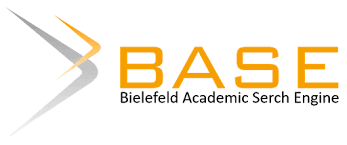PENGEMBANGAN PENILAIAN BERORIENTASI HOTS: UPAYA PENINGKATAN KEMAMPUAN BERPIKIR KRITIS SISWA DI ERA GLOBAL ABAD KE-21
DOI:
https://doi.org/10.59672/widyadari.v25i1.3660Keywords:
Assessment Development, Higher Order Thinking Skills, 21st Century, Global EraAbstract
This research aims to: 1) provide in-depth knowledge to teachers about the concept of HOTS-oriented assessment; 2) improve teachers' ability to develop HOTS-oriented assessment. This research is a literature research, with data sources are journal articles, reference books, modules, the internet, and other relevant sources. The study was conducted from October 2023 to February 2024. Data was collected by documentation and observation techniques. The research data were analyzed using exploratory descriptive methods. The results of data analysis are: 1) Higher-order thinking skills are the ability to think not just to remember, but the ability to analyze, evaluate, and create; 2) HOTS-oriented assessment has the characteristics of a) measuring higher-order thinking skills, b) contextual problem-based, c) using various question forms, d) divergent, and e) using multirepresentation. The steps for developing HOTS-oriented questions are a) analyzing basic competencies (KD), b) compiling a grid of questions, c) choosing an interesting and contextual stimulus, d) writing question items according to the question grid, and e) making scoring guidelines (rubrics) or answer keys. The benefits of HOTS-oriented assessment are: a) improving student achievement of learning outcomes, and b) increasing student learning motivation
Downloads
References
Anderson, L. W., Krathwohl, D. R., Airasian, P. W., Cruikshank, K. A., Mayer, R. E., Pintrich, P. R., Raths, J., & Wittrock, M. C. (2019). A Taxonomy for Learning, Teaching, and Assessing: A Revision of Bloom’s Taxonomy of Educational Objectives. Addison Wesley Longman, Inc.
Brookhart, S. M. (2010). How to Assess Higher-Order Thinking Skills in Your Classroom. Alexandria, Virginia USA.
Chalkiadaki, A. (2018). A Systematic Literature Review of 21st Century Skills and Competencies in Primary Education. International Journal of Instruction, 11(3), 1–16. https://doi.org/10.12973/iji.2018.1131a
Dima, M. L. B., Daflizar, D., & Ahmadi, A. (2021). The implementation of higher order thinking skills (HOTS) in english language teaching: the case of Indonesian Senior High School EFL teachers. Journal of English Language Teaching, 8(2), 255–268.
Ichsan, I. Z., Sigit, D. V., Miarsyah, M., Ali, A., Arif, W. P., & Prayitno, T. A. (2019). HOTS-AEP: Higher Order Thinking Skills from Elementary to Master Students in Environmental Learning. European Journal of Educational Research, 8(4), 935–942. https://doi.org/10.12973/eu-jer.8.4.935
Ichsan, I. Z., Sigit, D. V., Ristanto, R. H., Luthfi, I. A., Muharomah, D. R., Efendi, M., Panjaitan, R. G. P., Marhento, G., Widiyawati, Y., & Susilo, S. (2020). LOTS dan HOTS tentang tanaman obat: Pembelajaran sains dan lingkungan saat new normal COVID-19. Edubiotik : Jurnal Pendidikan, Biologi Dan Terapan, 5(02), 91–102. https://doi.org/10.33503/ebio.v5i02.888
I Kadek. Atmaja, I. Komang Sukendra, I. W. Widana. (2021). Pengembangan Bahan Ajar Digital Matematika SMA Kelas X Berorientasi HOTS. Widyadari, 22(2), 459–468. https://doi.org/10.5281/zenodo.5550368
Kemendikbud. (2017). Panduan Implementasi Kecakapan Abad 21 Kurikulum 2013 di Sekolah Menengah Atas. In Direktorat Pembinaan Sekolah Menengah Atas. Direktorat Jenderal Pendidikan Dasar Dan Menengah Kementerian Pendidikan Dan Kebudayaan.
King, F., Goodson, L., & Rohani, F. (2010). Higher Order Thinking Skills, Definition, Teaching Strategies, Assessment Program, now known as the Center for Advancement of Learning and Assessment. In Educational Services Program (Issue 18).
Listiana, Y. R. (2021). Dampak Globalisasi Terhadap Karakter Peserta Didik dan Kualitas Pendidikan di Indonesia. Jurnal Pendidikan Tambusai, 5(1), 1544–1550. https://jptam.org/index.php/jptam/article/view/1134
Nurjanah, M., Fauzia, F., & Fatonah, S. (2021). Implementasi LOTS dan HOTS pada Soal Tema 3 Kelas 1 MI/SD. Jurnal Evaluasi Dan Pembelajaran, 3(2), 70–79. https://doi.org/10.52647/jep.v3i2.36
Pratama, G. S., & Retnawati, H. (2018). Urgency of Higher Order Thinking Skills (HOTS) Content Analysis in Mathematics Textbook. Journal of Physics: Conference Series, 1097(1), 012147. https://doi.org/10.1088/1742-6596/1097/1/012147
Sa’dijah, C., Murtafiah, W., Anwar, L., Nurhakiki, R., & Cahyowati, E. T. D. (2021). Teaching Higher Order Thinking Skills in Mathematics Classrooms: Gender Differences. Journal on Mathematics Education, 12(1), 159–180. https://doi.org/10.22342/jme.12.1.13087.159-180
Setiawati, W., Asmira, O., Ariana, Y., Bestary, R., & Pudjiastuti, A. (2019). Buku Penilaian Berorientasi Higher Order Thinking Skills. Kemendikbud.
Siarova, H., Sternadel, D., & Masidlauskaite, R. (2017). Assessment practices for 21 st century learning: review of evidence Analytical report. European Union. https://doi.org/10.2766/71491
Sukendra, I. K. (2020). Developing teaching materials for Trigonometry in mathematics with realistic orientation using HOTS questions. Journal of Physics: Conference Series, 1663(1). https://doi.org/10.1088/1742-6596/1663/1/012020
Widana, I. W. (2017a). Higher Order Thinking Skills (HOTS). JISAE (Journal of Indonesian Student Assessment and Evaluation), 3(1), 32–44.
Widana, I. W. (2017b). Modul Penyusunan Soal Higher Ordher Thinking Skill (HOTS). In Direktorat Pembinaan SMA. Kemendikbud.
Wijaya, E. Y., Sudjimat, D. A., & Nyoto, A. (2016). Transformasi Pendidikan Abad 21 sebagai Tuntutan Pembangunan Sumber Daya Manusiadi Era Global. Prosiding Seminar Nasional Pendidikan Matematika 2016, 1, 263–278. http://repository.unikama.ac.id/840/32/263-278 Transformasi Pendidikan Abad 21 Sebagai Tuntutan Pengembangan Sumber Daya Manusia di Era Global .pdf. diakses pada; hari/tgl; sabtu, 3 November 2018. jam; 00:26, wib.
Yuliati, S. R., & Lestari, I. (2018). Higher-Order Thinking Skills (HOTS) Analysis of Student in Solving HOTS Question in Higher Educatio. Perspektif Ilmu Pendidikan, 32(2), 181–188. https://doi.org/10.21009/PIP.322.10
Zain, F. M., Osman, Z., Kasim, M., Ismail, N. H., & Rahman, F. A. (2023). Edmodo as a 21st Century Learning Tool to Enhance 4C Skills of Malay Language Management Undergraduates. International Journal of Information and Education Technology, 13(7), 1027–1036. https://doi.org/10.18178/ijiet.2023.13.7.1902
Downloads
Published
How to Cite
Issue
Section
License
Copyright (c) 2024 LPPM Universitas PGRI Mahadewa Indonesia

This work is licensed under a Creative Commons Attribution-NonCommercial-ShareAlike 4.0 International License.
Hak cipta mencakup hak eksklusif untuk mereproduksi dan mengirimkan artikel ini dalam semua bentuk dan media, termasuk mencetak ulang, memotret, mikrofilm dan reproduksi serupa lainnya, serta terjemahannya. Reproduksi dari bagian manapun dari jurnal ini, penyimpanannya di database dan transmisinya dengan bentuk atau media apa pun, seperti salinan elektronik, elektrostatik dan mekanis, fotokopi, rekaman, media magnetik, dan lain-lain, akan diizinkan hanya dengan izin tertulis dari penerbit jurnal.






1_(1).jpg)











